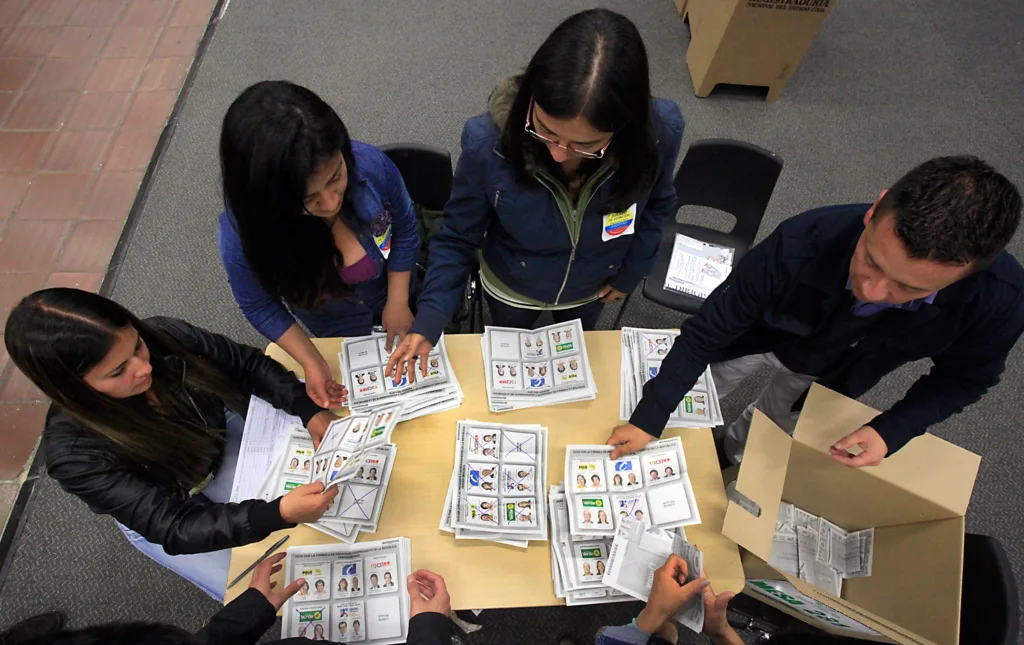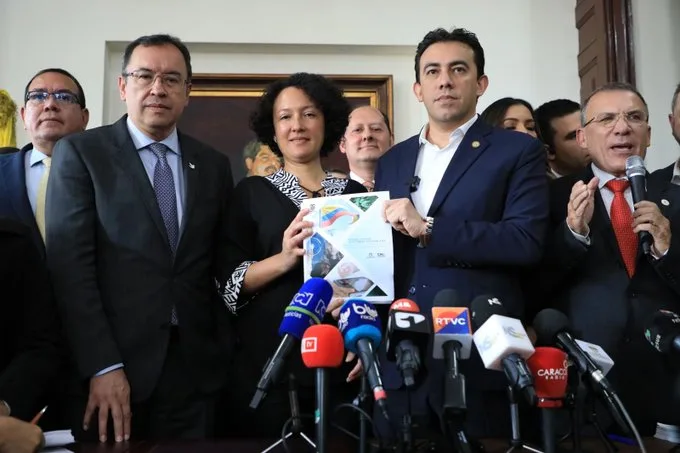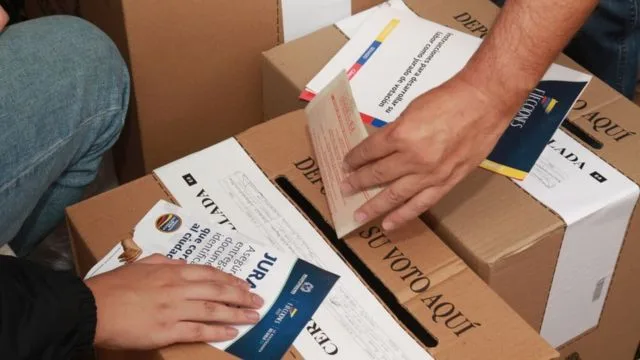According to Yanira Córdoba Rivera, departmental delegate of the Registry for Huila, there are more than 1,600 processes of this type against different Huilenses who failed to comply with the State by not providing their services as a voting jury during the 2018, 2017 and 2016 elections.
Diary of Huila, economy
By Gloria Camargo
An exhaustive process is being carried out by the Departmental Delegation of the National Registry of Civil Status for Huila against people who did not fulfill their duty as voting jurors during the last legislative periods, and for which today they must face coercive collection processes.
These processes will apply to “people who did not go to serve as voting jury in the 2018, 2017 and 2016 elections. A sanctioning process is being carried out in advance of these people who did not comply with that duty in the different Registries of the department”, explained in the first place Yanira Córdoba Rivera, departmental delegate of the Registrar’s Office for Huila.
At the same time, he added that “today those files rest in the Departmental Delegation and the coercive collection process is being carried out. These people are being summoned to come and make the different payments or make a payment agreement to culminate with this sanction that they have today for not having provided the service as a voting jury ”.
It should be noted that, as explained by the entity, the jurors are obliged to give the voters the electoral card and then do the pre-count, as well as to verify the identity of the voters, register and authorize each voter to enter their vote. in the urn
And they are chosen through a lottery where the citizens nominated by public and private companies, educational centers, and political parties and movements are found.
Those who do not comply with said mandate must face a fine, which is established in article 5 of Law 163 of 1994, people who, without just cause, do not perform said tasks may face dismissal from office, if is that it is a public servant or a fine of up to 10 current minimum monthly wages.
Processes in Huila
The official also pointed out that throughout the department of Huila there are more than 1,600 coercive collection processes.
“We have approximately 1,640 coercive collection processes in the department. The penalty for people who did not attend is a minimum salary for that year” and pointed out that “so if it was 2018, we are talking about 780,000 pesos, and so on.”
Córdoba Rivera also said that “depending on the year of the sanction, they are charged a minimum wage. But the people who attended the day as a voting jury but for some reason did not sign the E 14 form, are also being sanctioned and these sanctions are much higher, that is, for 10 legal minimum wages in force at the time. So there is also a variation in the classification of the sanction, ”he established.
Likewise, it was highlighted that if someone is subject to a sanction, said act is not a reason to be exempted from having to be appointed again as voting judges.
“This sanction will not exempt them from that legal duty, to provide the service of voting juries. If they are workers in private or public companies, teachers, or belong to a political party, they can be nominated again to serve as voting juries.
They are given the same treatment if they do not comply with the function, they will again be sanctioned, because that is also important to say that there are people who do not have a single sanction but have two or three sanctions, because they did not go to provide the service to none of the processes where they were summoned”, pointed out the Delegate.
Reform to the Electoral Code
In the Congress of the Republic of Colombia, one of the most significant modifications to the Electoral Code of the country is in transit. It is a bill made up of 400 articles, of which half have already been approved until the close of this Monday, June 5.

The representative to the Chamber, Katherine Juvinao, has called for restraint in the debate on this important bill. She argues that the proposed changes are key to the national electoral system and require a much deeper discussion process. In addition, she cautions that changes to the Election Code cannot be rushed through.
The bill has already been approved by the Senate, but now it is necessary to wait for the results in the House of Representatives. Discussions are currently taking place in the First Committee.
Faced with this, the representative of the Historical Pact, Alirio Uribe, expressed his satisfaction after the approval of the project. According to his statements, this law will regulate all aspects related to the elections, the functions of the electoral authorities and electoral fidelity. In addition, it will be applied to all electoral processes in Colombia.
During Monday and Tuesday, the First Commission of the Chamber advanced in the vote of the third debate of the project. Now, the project will go to the plenary, but it must be endorsed before June 20, since it is a statutory law.
What are the changes?
The changes, if fully approved, will have a significant impact on the upcoming elections and on the way citizens exercise their right to vote.
One of the most notable changes is the extension of electoral day. From now on, citizens will be able to vote from 8:00 am to 5:00 pm This extension seeks to provide greater flexibility to voters and allow more people the opportunity to participate in the electoral process.
However, one of the doubts that arose among the population was whether the dry law was going to be implemented during the elections. Until now, it has been decided to maintain the dry law from the day before the elections, with the aim of guaranteeing a transparent electoral process and avoiding the influence of alcohol in the decision-making of voters.

Another relevant change is the possibility that the voting juries use their cell phones during the development of the elections. This measure seeks to streamline the process of counting and transmission of results, allowing jurors to have access to digital tools that facilitate their work and reduce the margin of error in scrutiny.
In addition, the implementation of early voting for Colombians residing abroad has been established. This measure will allow compatriots who are not in the country to exercise their right to vote early, thus guaranteeing their participation in the electoral process.
In line with the commitment to promote transparency and control in the financing of political campaigns, exhaustive monitoring of advertising spending and campaigns on social networks by candidates will be carried out. This measure seeks to ensure that the resources used in the campaigns are managed responsibly and in accordance with the established standards.
The approval process for these changes continues to move forward. During the last days, the First Commission of the Chamber has voted in favor of the third debate of the project, which will now go to the plenary for its consideration. However, it is important to note that this electoral reform must be endorsed before June 20, since it is a statutory law.

